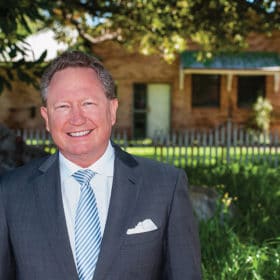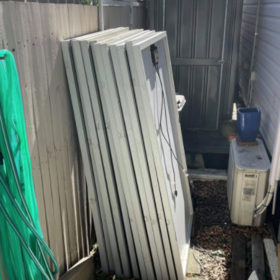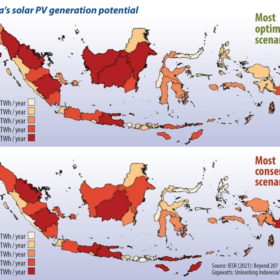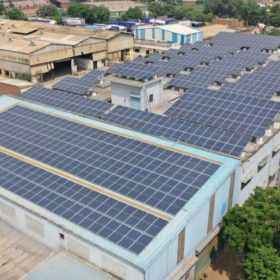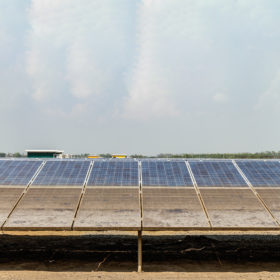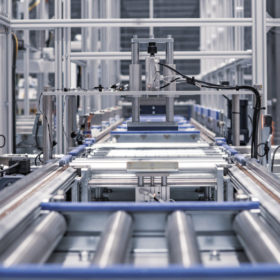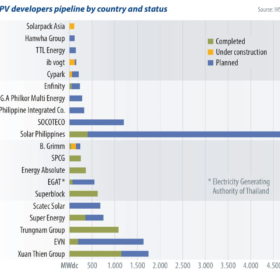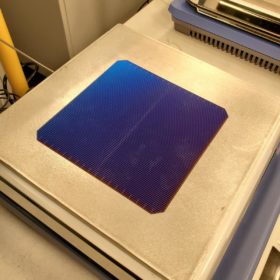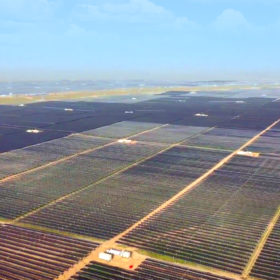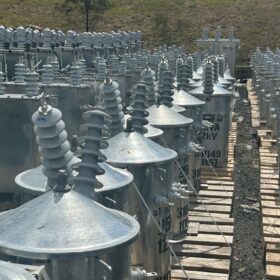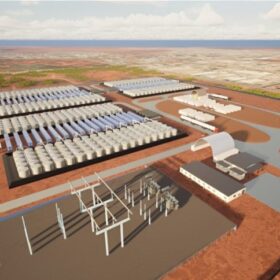Indian tenders hydrogen fuel cell technology for trains
The Indian Railways initially plan to convert diesel-powered trains in the 89km Sonipat-Jind section of Northern Railway to run on hydrogen. The hydrogen fuel cell retrofitment kit, along with the balance-of-plant and energy storage and hydrogen storage modules, will replace the existing power-train items onboard 1,600HP diesel-electric multiple unit (DEMU) rakes.
Australian firm partners with JSW Energy on green hydrogen projects in India
Australia-based Fortescue Future Industries has partnered with JSW Energy arm on green hydrogen production and application in India.
Half of my new sales are either replacements or additional systems
I had quite the epiphany in the winter of 2020. I began to realise that selling cheap solar systems isn’t actually a smart thing to do in the long run. I’d heard all the rumours from old heads of the industry, but went in a bit wet behind the ears with the old ‘it couldn’t happen to me’ mentality. But replacing solar panels that were only four years old made me wise-up very quickly.
Sunday read: Indonesia’s coal exit plan
Indonesia, the second-biggest coal exporter in the world, is now taking more steps to reduce its dependency on “black gold” as it starts to consider clean energy.
Commercial and industrial rooftops in India could deploy 1,875 MW of solar in 2021
According to a new report, India’s commercial and industrial sectors will increase their rooftop solar deployments by 47% year-on-year, with bifacials and large-size high-wattage modules offering cost-effective support for reducing electricity costs.
Why insurers are adjusting underwriting criteria for renewable assets
It’s no secret that extreme weather events are increasing, both in terms of severity and frequency. Australia is no exception. Despite historically seeing a relatively low occurrence of natural catastrophes, over the past 24 months the country has experienced cyclones, bushfires, large hail storms and numerous flooding events. This includes the recent floods in March of this year, in which New South Wales and parts of Queensland saw the worst flooding the region has experienced for six decades. Recent estimates predict the flooding to have caused between AU$919 million and AU$1.055 billion* in insured losses.
Sunday read: Europe’s gigafactory boom – 25 by ‘25
A gigafactory, as the name indicates, is a facility that aims to produce Li-ion cells at a gigawatt-hours scale of total capacity, so they can then be used in electric vehicles or stationary storage applications. The global production capacity of Li-ion cells is expected to reach 740 GWh by the end of 2021 – almost a threefold increase from 2017 – and Europe will account for 8% of the total. João Coelho, an analyst at Delta-EE, looks at how Europe plans to catch up.
Saturday read: Southeast Asia’s big PV plans – 27 GW by 2025
PV markets in Southeast Asia have picked up over the past two years, driven by the astounding growth of Vietnam. Regional policies, combined with growing demand for renewable power in the manufacturing industry, will result in 27 GW of new PV installations across the region over the next five years, writes IHS Markit analyst Dharmendra Kumar. PV installations in these countries are driven by attractive feed-in tariffs, net energy metering, tariff-based auction mechanisms, and other incentives.
The sunlight that powers solar panels also damages them. ‘Gallium doping’ is providing a solution
Solar power is already the cheapest form of electricity generation, and its cost will continue to fall as more improvements emerge in the technology and its global production. Now, new research is exploring what could be another major turning point in solar cell manufacturing.
China added 13 GW of solar to the end of June
The volume of new PV generation capacity added in the first half was higher than expected, given the rising input costs seen in recent months, but solar was nevertheless outpaced by new wind farms in the first six months of 2021.

